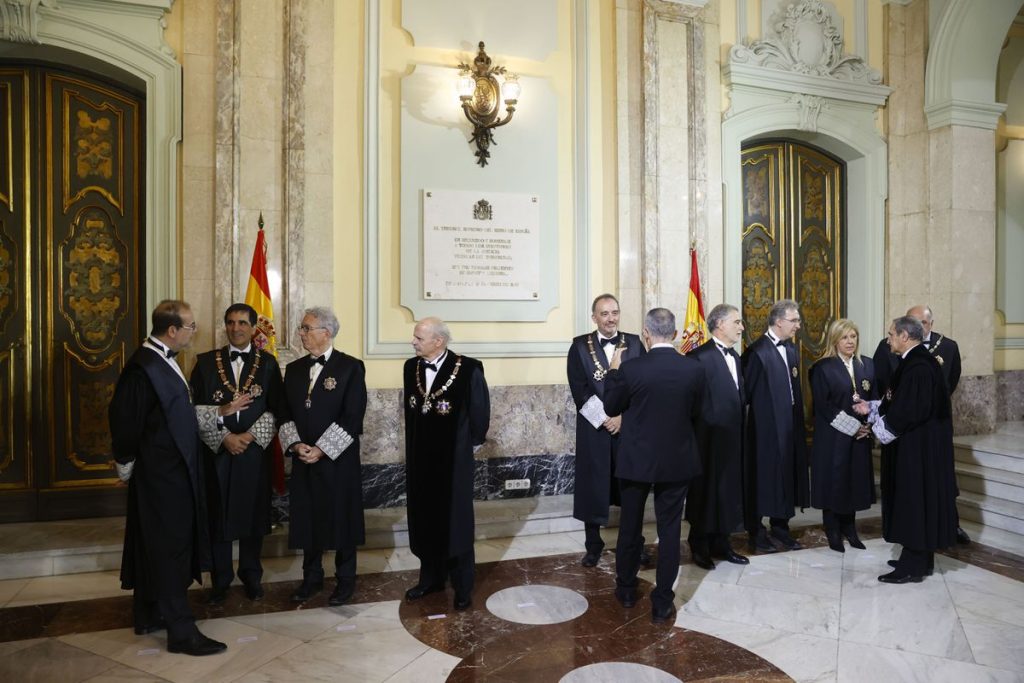The General Council of the Judiciary (CGPJ) has been studying for months the possibility of introducing remote voting in the upcoming elections for the governing bodies of the Supreme Court, the National Court, and the 17 Superior Courts of Justice, scheduled for November. The measure has received a favorable report from the technical cabinet of the CGPJ, but it has faced opposition from the governing bodies of the main courts, controlled by the majority Asociación Profesional de la Magistratura (APM), a conservative-leaning association that holds the majority of positions in these bodies. Other judges’ associations believe that the current voting system hinders participation and encourages “opaque practices” that allow the APM to accumulate power in these bodies. The APM denies this, but, in line with the decisions of the governing bodies, argues that the Council does not have legal coverage to implement remote voting.
The open struggle for the regulation of remote voting is a power struggle within the judicial hierarchy. The debate comes at a time when the PP is trying to impose a condition for the renewal of the CGPJ, whose mandate expired five years ago, which is the reform of the system of electing the 12 judicial members to be elected directly by the members of the judiciary, rather than by the Congress and the Senate as currently done. Those opposing this change argue that this formula could favor the main conservative association to dominate the majority of the members, as is the case with the governing bodies of the higher courts, the National Court, and the Supreme Court.
These governing bodies are collegiate bodies that make the main organizational and administrative decisions of the courts, from informing about service commissions that determine appointments, to proposing inspections or drafting reports that lead to the creation of new bodies. The number of judges varies depending on the court, but all are composed of ex officio members (including the president and the presidents of the chambers) and an equal number of magistrates or judges elected by their peers through an electoral process held every five years where independent candidacies or proposals from judicial associations can be presented.
In the last elections held in November of 2019, the APM (1,413 members) obtained 61 of the 117 positions available (52.1% of the total). In the Supreme Court, they won three out of five positions – one went to the progressive Judges for Democracy (JJpD, 434 members) and another to a non-member. In the National Court, they obtained all three positions. They also dominated the Governing Bodies of the Superior Courts of Justice with the highest number of judges: Valencian Community (six out of six); Galicia (seven out of seven); Castilla-La Mancha (eight out of eight); Basque Country (six APM; one JJpD); Andalusia (14 APM; one Asociación Judicial Francisco de Vitoria, AJFV, with 885 members); Madrid (three APM; one AJFV/Independent Judicial Forum) and Catalonia (six APM; one JJpD).
The Organic Law of the Judiciary (LOPJ) provides that the election be carried out by in-person or by mail voting, but many judges complain that the former is almost impossible for many members of the judiciary because voting can only be done at the Superior Court of Justice headquarters, and in some cases, at electoral section tables in another provincial capital. Many opt for mail voting, but judges say it also has “deficiencies,” such as delays in receiving documentation. The difficulties of both systems have led, as lamented by associations with less representation, to the imposition of delegated voting, as the law allows any colleague to vote on behalf of another by presenting only a copy of their ID or professional card.
The Francisco de Vitoria Association, Judges for Democracy, and Independent Judicial Forum requested the CGPJ months ago to regulate remote voting to eliminate these situations. They aim to eradicate opaque practices and allow voting from their workplaces through remote identification with a digital certificate. The CGPJ has conducted a technical study that concluded that this measure does not require a reform of the Organic Law of the Judiciary, and the council is currently working on modifying the regulations to allow remote voting despite facing opposition from the ruling bodies of various courts.


